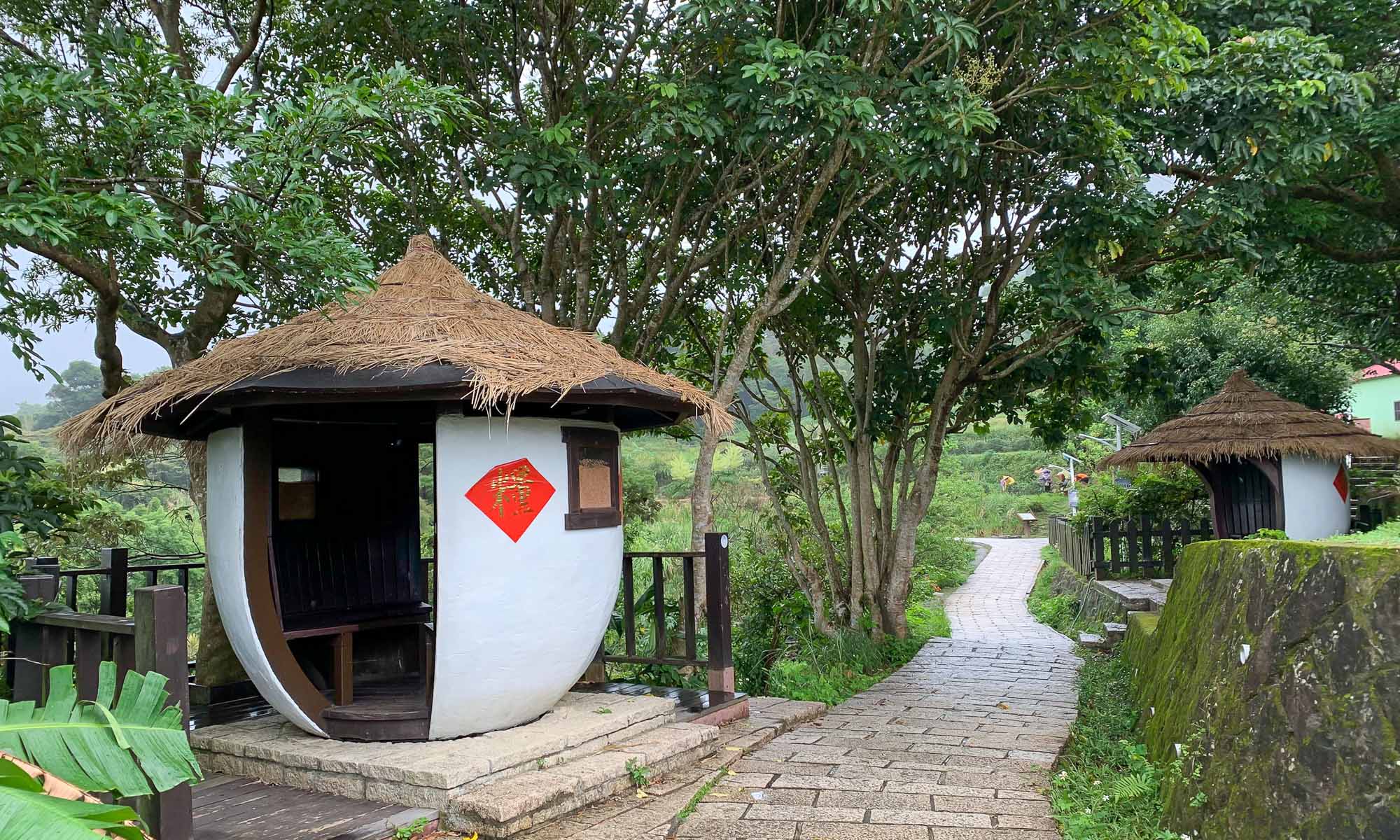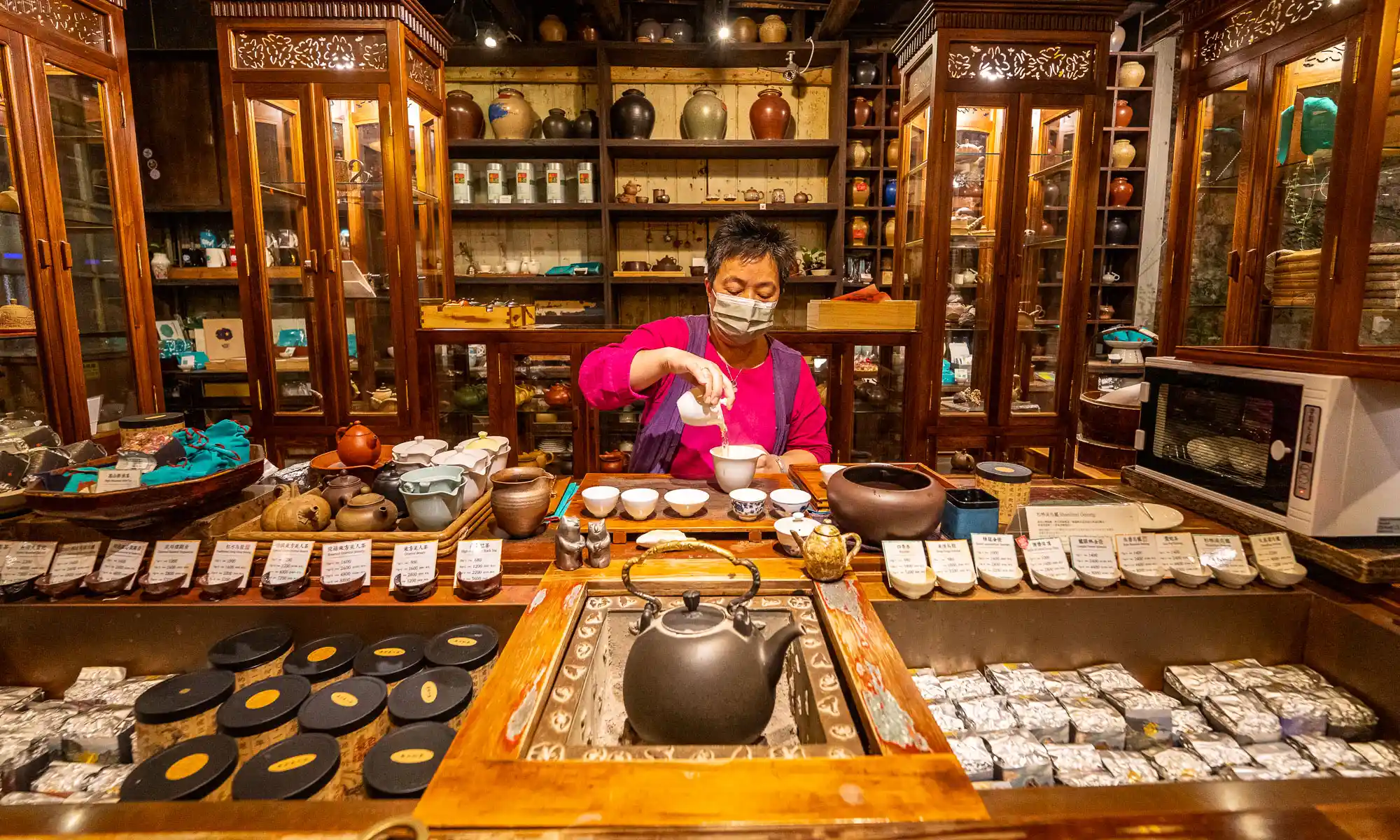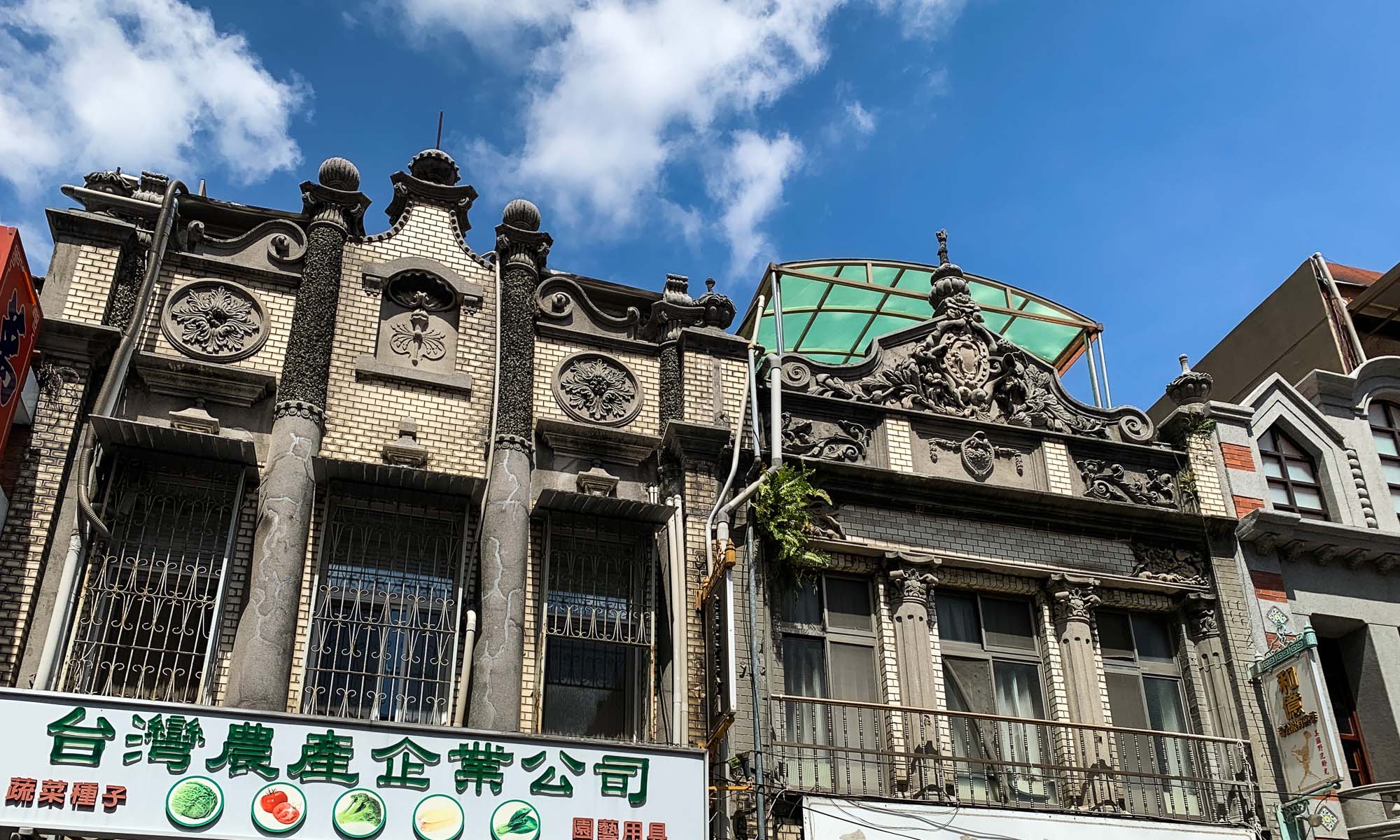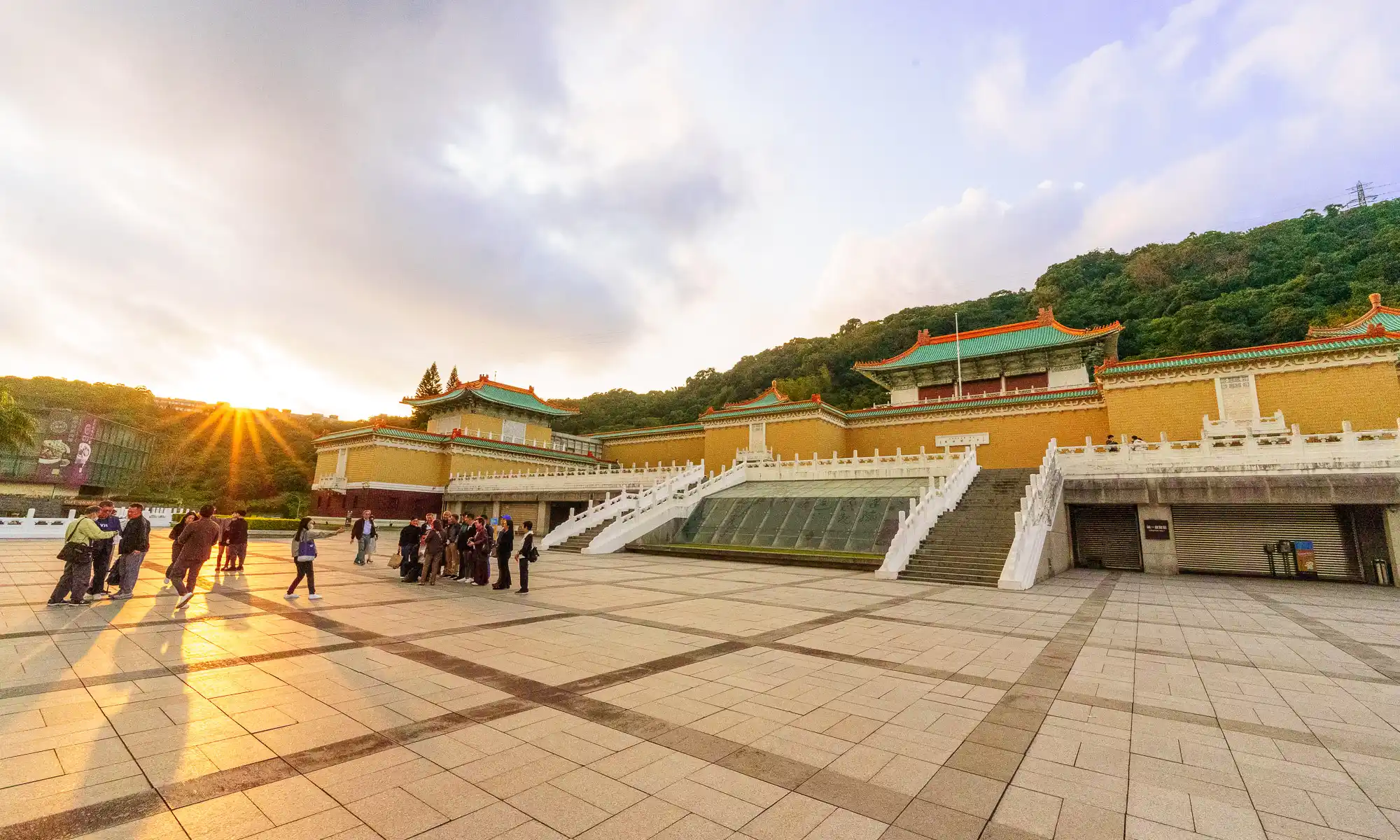MAOKONG TEA GARDEN
Maokong Tea Garden, hidden in the low-elevation mountains just south of Taipei, is famous for being the origin of the Wenshan Baozhong style of tea. The mountainside tea gardens make for one of Taipei’s most rewarding day-trips. Hiking, tea tasting, local cuisine, art workshops, temples, and even romantic night time tea houses are all popular attractions. An alternative to taking a taxi into the mountains is taking Taipei’s only skytrain (gondola) from the Taipei Zoo station to the top of Maokong. Breathtaking scenery abounds as the glass-floored cabins of the gondola traverse mountains and slowly climb to Maokong city. Buses and taxis are also available.
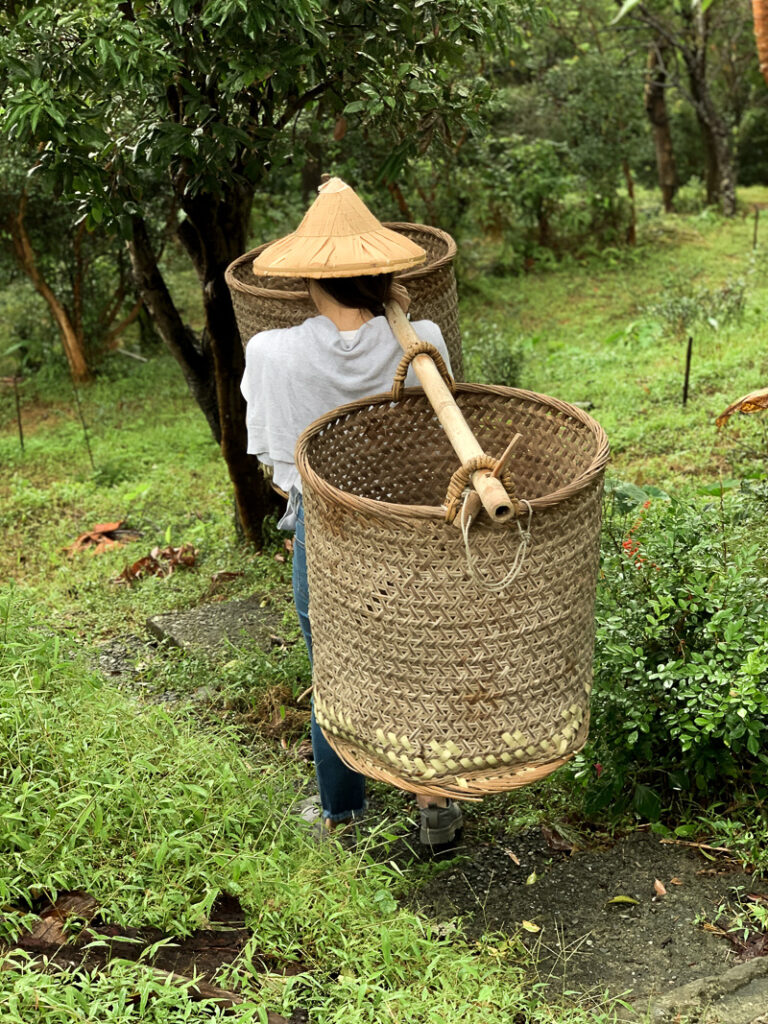
Maokong Station, where both the Gondola and buses depart from, is the starting point for most adventures. From there it’s a short 15-min walk to the Taipei Tea Promotion Center, where visitors can learn about tea manufacturing as well as the proper ways to brew and store tea leaves. The Center also offers “tea postcard” services, where you can mail a small pack of local tea to your friends abroad along with a postcard, as well as hand-on art workshops that combine ecological education with creative expression.
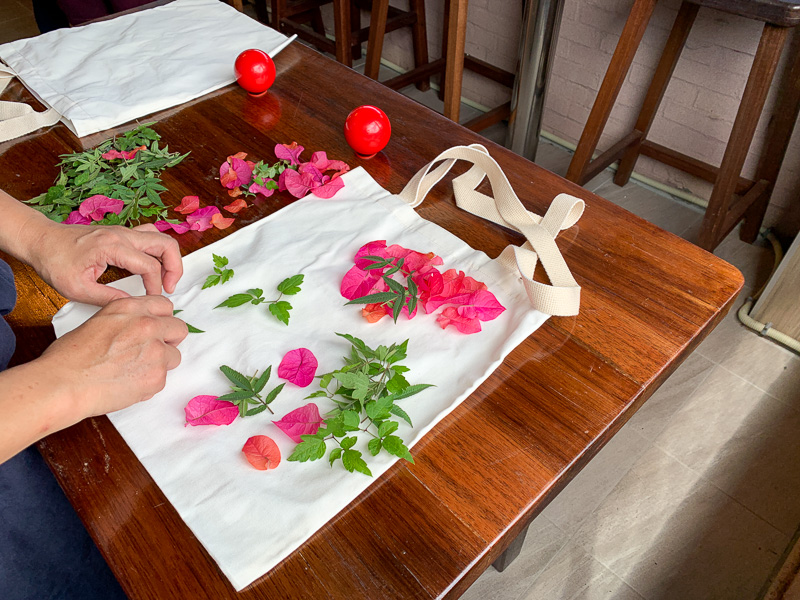
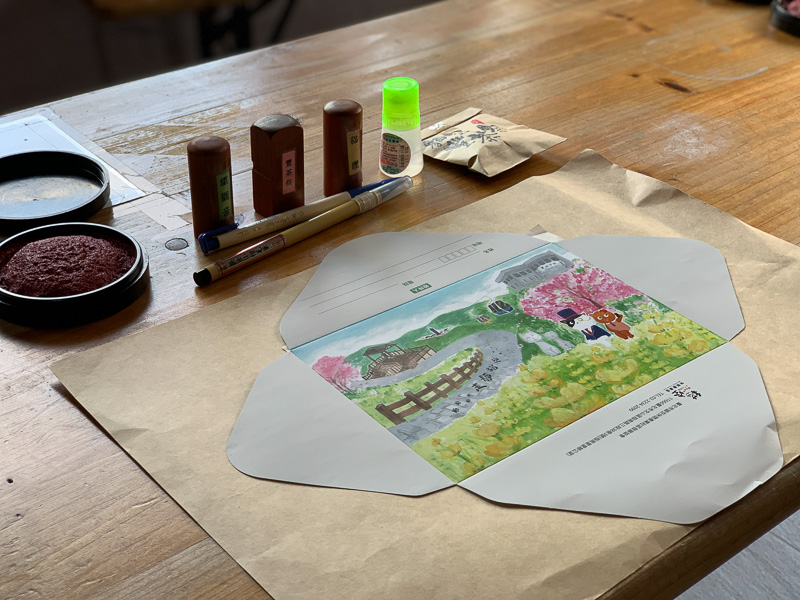
The Taipei Tea Promotion Center’s special postcard set featuring local tea leaves. (right)
The mountaintop gardens are intersected by various hiking trails which are an excellent way to build up an appetite for dinner. The Healthy Trail, Maokong Potholes Trail, and Zhanghu Trail are the most popular hikes, while the Zhangshu Trail is the easiest and smoothest option. For hiking enthusiasts looking for a more challenging route, Maokong is part of the 18-kilometer-long “section 7” loop of the Taipei Grand Trail.
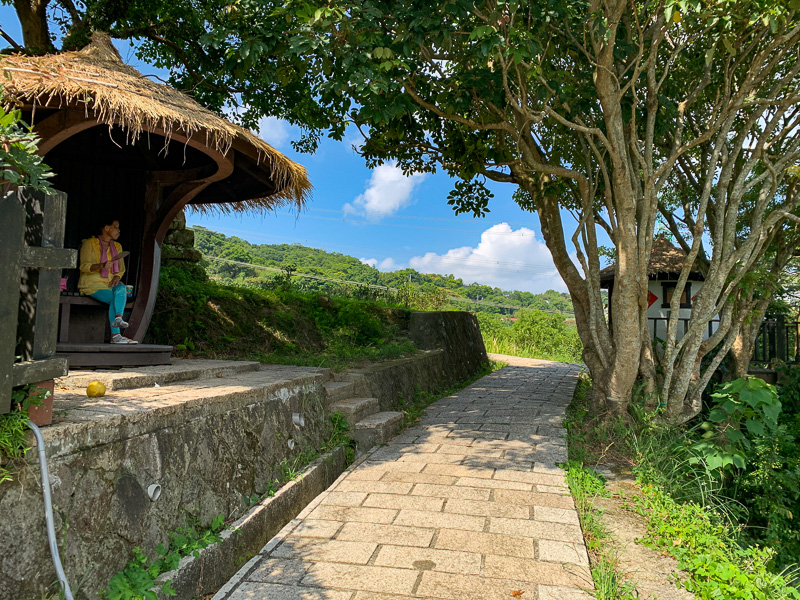
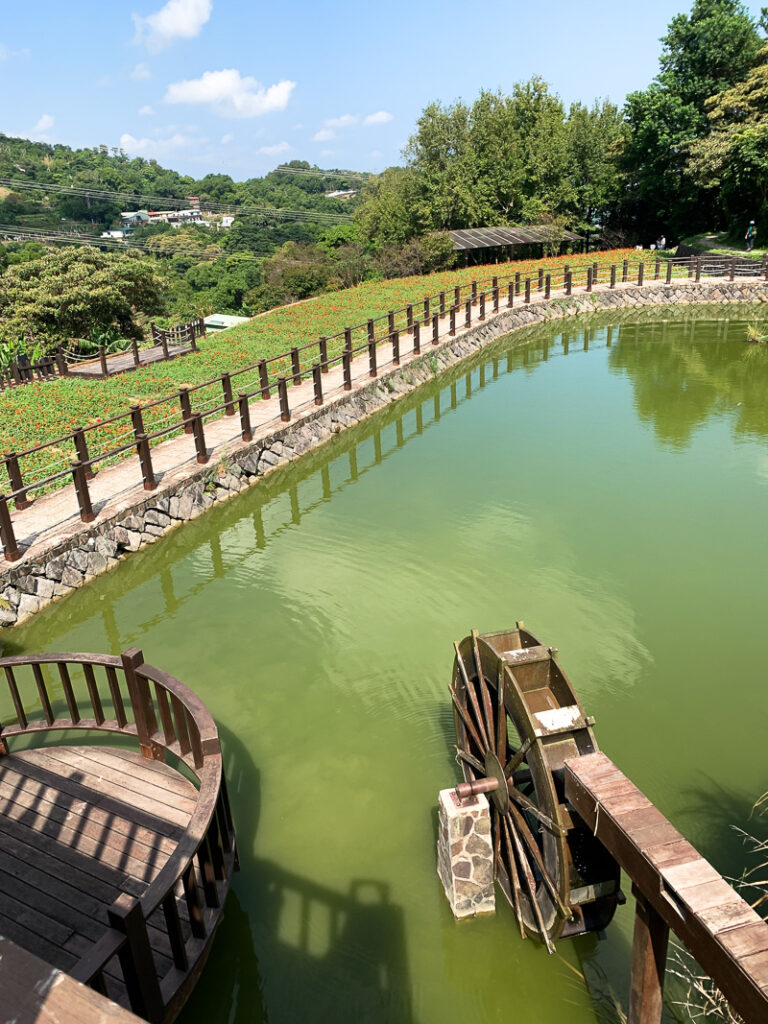
Maokong is known for the quality of its Tieguanyin style tea, and for being the origin of Four Seasons Spring Oolong tea. Hong Zhi Tea Farm, one of the many farms in the area that offer tea experiences, not only displays traditional tea making tools, but also offers manual tea processing experiences. The most interesting step is “hand-rolling” the tea leaves to give them their unique shape, a technique that varies with the style of tea produced. Tea leaves are wrapped in fabric and are rolled through kneading and rubbing motions. This time consuming process has now been automated via machinery at most tea factories.
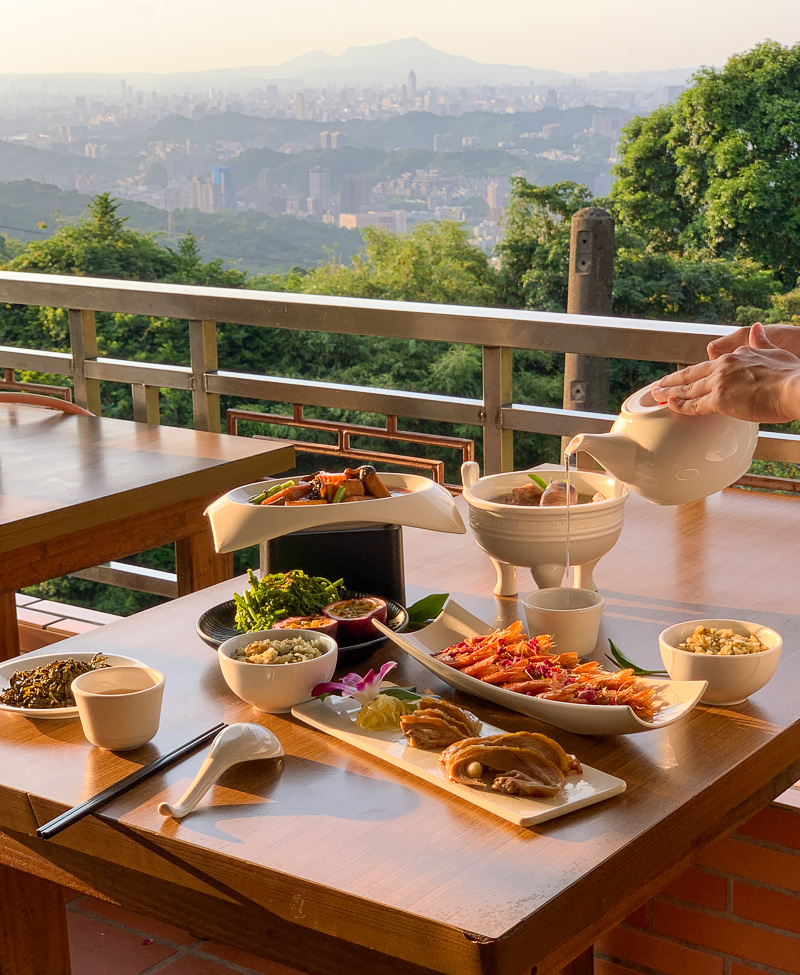
In Taiwan’s countryside, nourishing restaurants are often just around the corner from main attractions. Ayishi Big Tea Pot is one of many semi-open air restaurants that sit on Maokong’s slopes offering excellent views of the Taipei Basin. The restaurant’s tea infused dishes are both delicious and nutritious and when accompanied by the sunset hues over Taipei’s skyline make for a great way to end a tiring day.

